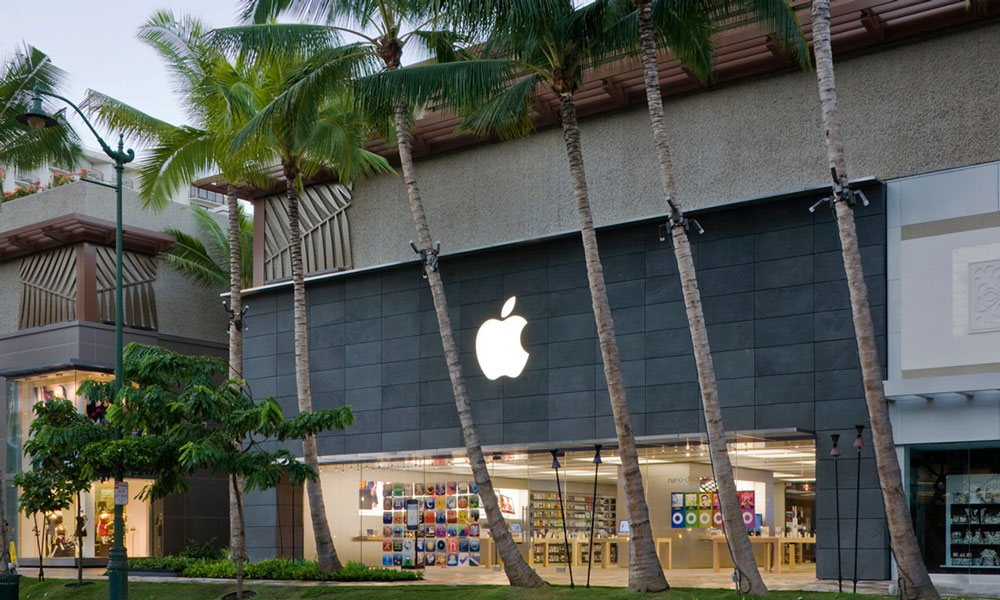Apple Stores Across the U.S. Slowly Reopening (Here Are Which Ones)
 Credit: Apple
Credit: Apple
Toggle Dark Mode
It’s been almost a year since Apple closed all of its retail stores around the globe in the wake of the novel coronavirus pandemic, and while the company began slowly reopening some stores last May, it’s been a rollercoaster ride for most of Apple’s retail business as the pandemic ebbs and resurges.
Notably, even though most Apple Stores were available in a limited capacity last fall, by December many have moved to an ‘Express Pickup’ model, prohibiting in-store shopping in favour of online orders and quick pickup counters at the front of the store. It wasn’t long after, however, that about 1/5th of worldwide stores found themselves closed again — and just before Christmas, too.
To be fair, Apple has made it clear from the outset that it wouldn’t hesitate to close stores back down in areas where COVID-19 case numbers started going up again — and in many cases it’s been quick to do this even ahead of government regulation, regardless of how much it’s costing the company in lost sales. The said, as countries like the U.K. went into even more stringent lockdowns last month, Apple also saw its hands tied in those areas, with no flexibility to even allow for Express Pickup.
In fact, Apple has had to work within both local health regulations and even policies imposed by shopping malls where many Apple Stores are located, although for the most part, it’s been pretty good at striking a balance wherever possible. For example, while health policies in the Los Angeles area forced a complete closure of Apple Stores just before Christmas, many Apple Stores in the Greater Toronto Area — all of which are located in now-closed shopping malls — were able to move to a curbside or “mall front” pickup policy, with Apple retail staff simply bringing customer pre-orders to a designated common pickup area on the outside of the shopping centre.
In-Person Shopping
There’s a glimmer of hope once again appearing, however, as many Apple Stores across the U.S. are not merely returning to Express Pickup but have actually begun to allow for in-store shopping.
The news comes from 9to5Mac, which has been tracking Apple Store closures around the world for some time now. According to its latest data, it looks like over the course of the past week Apple has been reopening stores in Alaska, Colorado, Delaware, Maryland, Michigan, Oregon, Wisconsin, and Washington D.C., with most now offering in-person shopping sessions by appointment.
The report also notes that locations in Manhattan, Hawaii, and Maine never fully shut down, but with these latest reopening, the total number for Apple Stores in the U.S. that have dropped their Express Pickup storefronts and are now open for in-person shopping has reached 39 as of last Friday.
Of course, when you consider that there are 271 Apple Stores across the U.S., the number of stores that have returned to some semblance of normalcy is still pretty small, but it’s likely this is just the first wave of reopening, and it will be followed by others in the coming days and weeks — barring any resurgence in cases in specific areas, of course.
At this point, around 160 other stores in the U.S. remain open for Express Pickup, and Apple has been reopening some of the stores that were shutdown before Christmas, including those in North Carolina, South Carolina, and Texas, although its locations in the Greater Los Angeles area, Southern California, Arizona, East Texas, Alabama, and Georgia all remain closed at this point.
Apple Store closures have proven to be good indicators of the status of the pandemic in various areas, as Apple hasn’t hesitated to shut down stores even before public health officials have insisted on it, and also tends to be far more cautious about reopening, since its deep pockets put it in a much more stable position than most retailers to weather such closures.
Still, even though a few Apple Stores are returning to in-person shopping, pickup of online orders remains available, and is by far the much safer option.






